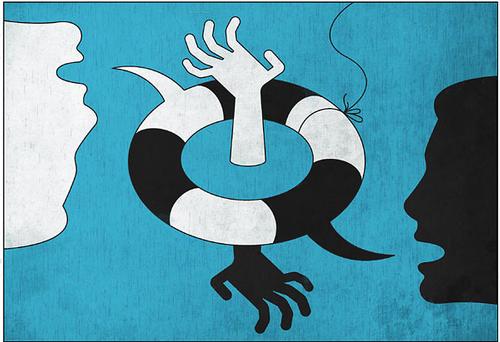It is hard to talk about the Civil War without talking about race and slavery. Whether or not one believes it was the primary driver of the war, or only a side issue to the matter of states’ rights—an idea advanced in some states, to the chagrin of many historians—we cannot deny that slavery was a core part of life in the South (and of the economic fabric in the North—a topic for another day) leading up to and during the war.
It can, therefore, be surprising, as one digs into this year’s featured One Book, One Philadelphia selection Cold Mountain by Charles Frazier, to find little mention of this “peculiar institution,” fundamental to this time period in American history.
In the first 200 pages (full disclosure: This is where I am in the book so far), Cold Mountain mentions slaves only twice, and both mentions are in passing. For instance,
As Inman journeyed toward home: “He met few people and those mainly slaves” (147).
Slavery, then, exists on the periphery of this story. This novel follows two characters, both white—one a deserting Confederate soldier, the other a woman living on her own, taking care of her family’s farm in North Carolina. Although it is fictional, it seems to be a faithful depiction of what their lives would have been like and the struggles such figures would endure.
But how do we as readers grapple with what seems to be a hole in the history it shares?
The One Book committee chose Cold Mountain because it is a beautifully told, powerful story about a key era of American history. But it was aware of the parts of this history the novel misses—which is why this One Book season includes two companion selections, each thoughtfully chosen to further uncover this challenging time.
Twelve Years a Slave, a memoir by Solomon Northup, is an unflinching depiction of the realities of slavery. It takes place in the 1850s, nearly a decade before the action of Cold Mountain, and offers a view of slavery and plantation life not just missing from Frazier’s story, but absent from much of the social consciousness of its own era. Northup actually dedicate his account to Harriet Beecher Stowe, whose Uncle Tom’s Cabin awakened many to the horrors of slave life—and who some credit for “start[ing] this great war.” Writing such as Beecher Stowe’s and Northup’s is what brought slavery into the national conversation in the 1800s—and it can still do the same for us today.
The other companion selection, The Civil War, by Geoffrey Ward with Ric Burns and Ken Burns, offers a “straightforward” historical account of the years of the Civil War—providing a fuller historical backdrop to the more personal accounts of the other selections. It, too, brings slavery to the forefront of this history. In its introduction, Ric Burns and Ken Burns acknowledge a key question that has long been missing from historical accounts:
"Why have succeeding generations obscured the war with bloodless, gallant myth, blurring the causes of the war and its great ennobling outcome—the freeing of four million black people and their descendants from bondage?" (viii)
We hope all these works, together, will guide us in fruitful—perhaps challenging—conversations about our country’s past, and in recognizing whose stories various works have chosen to tell.
Have a question for Free Library staff? Please submit it to our Ask a Librarian page and receive a response within two business days.

